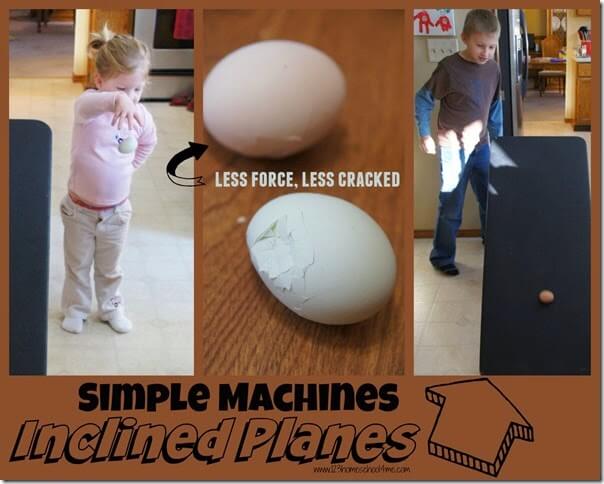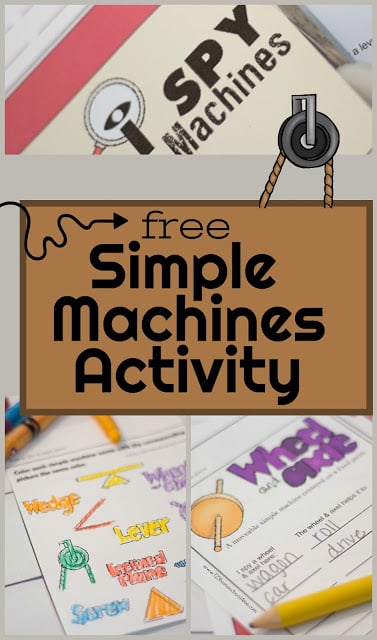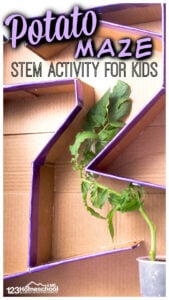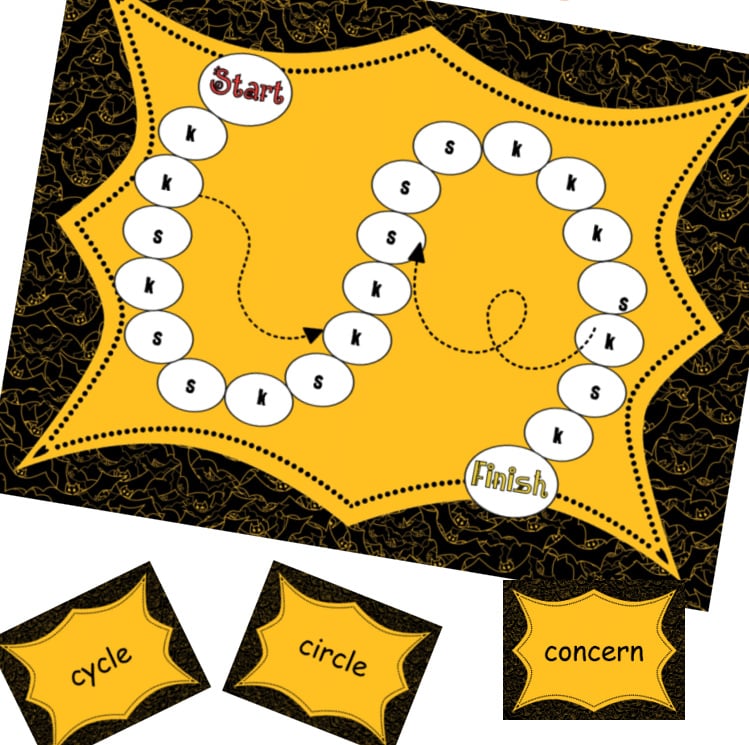Join us in our five week science unit for kids discovering the six simple machines. Lots of hand on activities, book recommendations, free printables, and more! These science activities for kids are recommended for Kindergarten, 1st grade, 2nd grade, 3rd grade, 4th grade, and 5th grade students.
Inclined Planes Simple Machines Lesson
Today we start a new hands on science unit for homeschool kids – simple machines. We will discuss why we need simple machines, simple physics concepts for kids, and discuss the first of the six simple machines – inclined plains. This unit is geared towards Kindergarten, 1st grade, 2nd grade, 3rd grade, 4th grade, and 5th grade students.
Keep scrolling to learn more and see the rest of our simple machines for kids study!
Why do we need Simple Machines?
We need simple machines to help us work more effectively. To better understand how machines work, we need to define some physics concepts for kids.
Simple Physics Concepts for Kids
We started out reading some books (the heart of any study). These are our favorites that I highly recommend.
If you have a Preschool or Kindergarten age child joining your Simple Machine Unit they will enjoy Newton and Me. This beautifully illustrated picture book explains the basics of forces and motion in an easy to read rhyming book.
Let’s start with a simple hands on science activity to help kids understand the basics of physics.
Put a box of books that is too heavy for your child to lift on the floor. Ask your child to life the box on the table. Once they get past the “I can’t do it” part, have them problem solve how they can accomplish their work. They can take the books out/move the box/put the books back in or have a friend help them. No matter how they accomplish it, how long it takes, or who helps it is still the same amount of work.
- When you were moving the box the force of gravity was working against you; making it heavy to lift.
- You used energy to lift the box.
- When you worked together you each had to use less power to accomplish the same work.
Simple machines make work easier
Machines make our work easier. Think of how much work it would be to pick up a car to take it to the mechanic if we had to do all the work ourselves. Luckily we have a machine called a tow truck that makes it easier.
What are other types of machines we use?
Many machines are complex with lots of moving parts, but ALL complex machines are made from six simple machines: inclined plane, wedge, screw, lever, pulley, wheel, and axle. Simple machines have one or no moving parts.
Inclined Planes
An inclined plane is a flat surface with one edge raised higher than the other. They are useful to help moving heavy items from one level to another easier. They include things like hills, ramps, staircases, and so many more! This book helps kids visualize a whole bunch of inclined planes:
Inclined Planes Experiment
We used a hands on science experiment to demonstrate inclined planes.
First I had the kids try to carry a suitcase up and down the stairs. (Yep, I made it extra heavy.) Then I suggested we try moving it using an inclined plane like we were learning about. We used a long card table since we didn’t have a box laying around. The kids were amazed at how much easier it was to move the suitcase up the stairs using an inclined plane.
Inclined Planes “Egg”speriment
Next we explore how inclined planes reduce force with an “egg”speriment.
I hardboiled three eggs (I didn’t really relish the idea of having egg all over). One kid dropped the egg straight down. The next used an inclined plane. The third child used a very gradually sloped inclined plane. The kids observed that using the inclined plane, especially the less steep one, helped the egg go down more slowly and become less cracked.
Force Varies by Incline
We did a third simple machine inclined plane experiment. I explained how force will vary depending on the incline of your ramp just like the less steep egg ramp helped the egg to use the least amount of force and crack less. So we had 3 ramps of increased steepness. We then raced them to see which one would go down with the most force; quickest.
Much to my sons delight, his steep ramp made his car go the quickest of all three cars.
Physicists call this the mechanical advantage. It’s the length of your incline plane (ramp) divided by your height.
Simple Machines for Kids
- Inclined Planes for kids – explanation, activities, and resources
- Wheel and Axle for kids lesson with projects and other fun ideas
- Gears for Kids filled with lots of hands on activities
- Wedges and Screw Simple Machine Lesson for children
- Levers and Pulleys lesson for students
- I Spy simple machines for kids
- MATCH – Simple Machines Game
- 30 Simple Machines for Kids Projects
- Free Simple Machines Worksheet to fold into a clever booklet
- Candy Simple Machines Project
- Pulley Experiment from recycled materials
Fun Science for Kids
Looking for lots more fun, science experiments for kids? You’ve GOT to try some of these outrageously fun science experiments for kids! We have so many fun, creative and easy science experiments for elementary age children:
- 100 Amazing Food science experiments for kids – arranged by type of science
- Colorful Capillary action science experiment (also known as walking water)
- Amaze kids with these 12 Hands on Science experiments with batteries
- 24 Epic Solar system science projects to try this week
- Fun Water balloon science experiment that explores density
- 50 Fun Preschool science experiments the whole family will want to try
- Simple Galaxy science project
- Easy and Fun Dancing Raisins Experiment
- Learn about weather as you find how to make a weather vane
- Eye opening Eye science experiments
- Easy-to- make Air pressure science project
- Amazing POP rocks science experiment is one of our all-time favorite science experiments we like to do during the summer are
- Stunning Chromatography Flowers are so pretty you’ll forget it was as science project!
- How to Make a Lava Lamp – super easy and SO cool!
- 30 Simple machines science projects kids will want to try
- Easy, fascinating, and colorful project answering Why do Leaves Change Color Experiment
Plant Activities for Kindergarten
- Potato Maze – Summer STEM Activity for Kids
- Water Pollution for Kids Science Expeirment
- Simple Geranium Photosynthesis Experiment for Kids
- How to Regrow Celery in Water
- Food coloring flower experiment worksheet Science Experiment for kids
- Color Changing Flower Experiment learning about capillar action






























